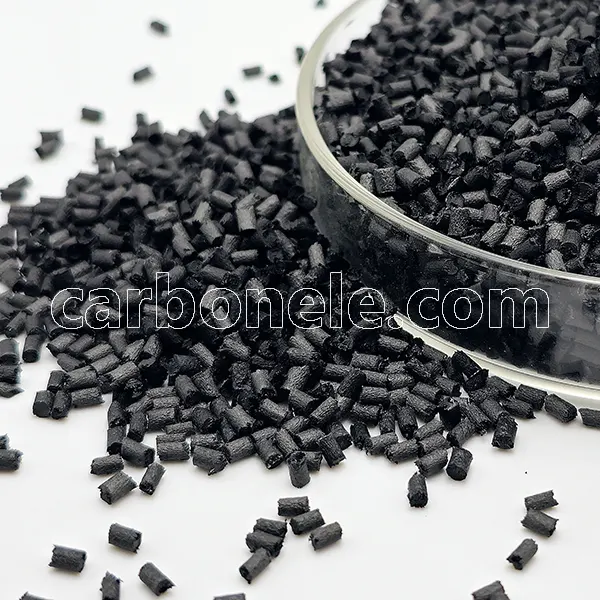Processing And Recycling Of Black Plastic Pellets - Carbon Fiber Compounds Manufacturer | Supplier
Apart from ensuring the preservation of the natural surroundings, the recycling and treatment of black plastic particles is a complex operation requiring proper use of the available resources. The technology controlling black plastic particle treatment and recycling is always developing and becoming more advanced. This is occurring concurrently with growing awareness of the risks plastic pollution presents among more individuals all over.
The recycling process revolves on classification rather naturally
First, it is important to classify the black plastic particle generated before starting the recycling process. Classification of the materials is one of the most crucial phases of recycling. Black plastic particles might therefore originate from a variety of different kinds of plastic, including polyethylene (PE), polypropylene (PP), and polyvinyl chloride (PVC), all of which are unique forms of plastic. Generally speaking, this is accomplished with either superior optical sorting technology or human selection.
obtaining a cleaned-up, crushed form of the
The recycled black plastic particles must be cleaned if they are commonly accompanied by dirt and other pollutants as they need to be free of these elements. The plastic particles will be crushed into smaller flakes or granules straight after the cleaning procedure is complete to prepare them for next handling and processing needs.
The proposed approach is drying and removing alien components
After the black plastic particles have been rinsed and crushed, they must be dried to eliminate any moisture that could still be present. To guarantee the purity of the recycled plastic particles, all conceivable foreign elements—such as glass and metal—must be removed. Guaranturing the quality of the recycled plastic particles depends on this.
Recyclable materials are turned into
Following their cleaning, crushing, and drying as well as after any foreign matter has been eliminated, black plastic particles are then ready for recycling. Melting, filtration, and extrusion are among the stages usually included in this process—used to create new plastic particles or products—that New plastic commodities are produced using this approach. To enhance the qualities of the plastic, several chemicals—such as stabilisers, antioxidants, and other compounds of a similar nature—may be needed to be introduced into the recycling process.
Make use of products recycled via the process
Products ranging in nature and each suited for a certain function may be made from recycled black plastic particles. Among the goods falling within this category are building materials, industrial pallets, park seats, garbage cans, and other objects. These are not only reasonably priced but also serve to guarantee that there is less need for newly produced plastic-based raw resources.
Chemical Recycling Procedure
Black plastic particles might be turned into other usable fuels or chemicals in terms of recycling. Apart from the many physical recycling techniques accessible, chemical recycling allows this. Among the technologies used in the course of chemical rehabilitation are pyrolysis, gasification, and catalytic cracking. Polymers may be disassembled into their fundamental chemical building elements by use of these methods. After that, these elements might be re-synthesized into fresh polymers or other goods.
Promotion of the acceptance of rules and policies
The treatment of black plastic particles as well as their recycling depend much on the laws and guidelines the government accepts. Encouragement of the recycling and treatment of black plastic particles may be achieved by passing laws limiting the use of throwaway plastic products, establishing recycling goals for plastic, and therefore providing incentives for recycling and treatment. One may do this by use of policies.
Common public knowledge
Growing knowledge among the general people regarding the recycling and treatment of plastic is another crucial element influencing the growth in the recycling of black plastic particles. Increasing broad public awareness might help to enhance this knowledge level. Public awareness campaigns and educational initiatives may help to accomplish the objectives of motivating people to recycle plastic and therefore lower the amount of garbage produced from it. One may do this by stressing to others the need of recycling plastic.
Technological developments connected to numerous industries
To improve the effectiveness of recycling black plastic particles and to reduce the related costs, the development of new technologies is rather essential. Advancement of black plastic particle recycling depends on many important actions conducted in different directions. These phases include the development of new recycling technologies, augmentation of current procedures, and degree of automation improvement.
The building of a system of circular economy
The application of the circular economy is achieved in part by the treatment and recycling of black plastic particles. By means of the transformation of trash into resources fit for use, one may minimise environmental effect and concurrently generate financial value.
Globally help one another in mutual benefit
Plastic pollution is a worldwide issue that only the combined efforts of the countries making up the international community can help to address. By means of worldwide collaboration, it is possible to distribute best practices, technologies, and experiences thereby promoting the recycling and treatment of black plastic particles in a cooperative approach.
Under a methodical approach, the recycling and treatment of black plastic particles calls for the cooperation of the public overall, many businesses, and government agencies. This initiative is meant to have long-lasting effects. Particles of black plastic might be transformed into consumable products or raw materials by means of many procedures including sorting, cleaning, crushing, drying, and regeneration processing. One may get many advantages from this metamorphosis. While this is under progress, the advancement of technologies allowing chemical recycling offers a fresh way to handle generated trash from plastic. Encouragement of recycling and treatment of black plastic particles depends on many important factors, like public awareness, legislative assistance, technical innovation, and the adoption of activities associated with a circular economy. Black plastic particle recycling and processing are expected to get increasing attention and development as the global society becomes more worried about the plastic pollution causing havoc.
Previous News
The development trend of black plastic particlesNext News
Application of Thermoplastic Composites in the ...
Feature Product
-
PA12 LCF30 for Drone Fuselages & Wings
What do you know about PA12 LCF30? PA12 ...
-
Competitive Price PA6 LCF30 Composites
What’s it? PA6 LCF30, which stands...
-
ABS CF10 Compound ABS 10%CF Thermoplastic Compo...
What’s ABS CF10? ABS CF10 refers t...










